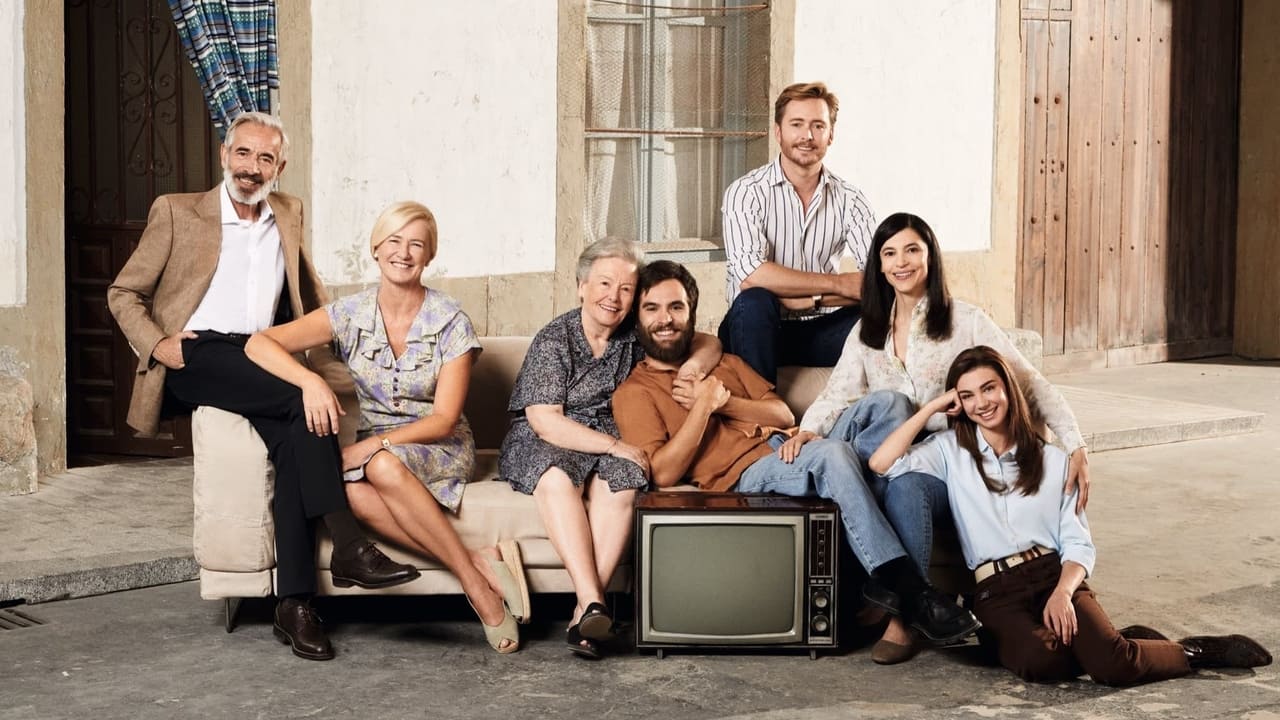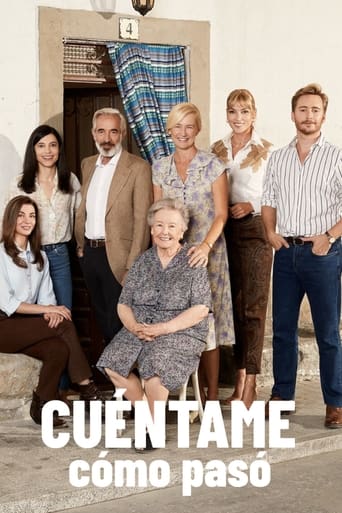

Cuéntame is a great depiction of how history is lived by ordinary people. You don't have to have been there to appreciate it, it informs you with a wealth of everyday detail in the sets, characters and conversations. I had seen odd episodes on previous visits to Spain and now I'm here for the year, I'm watching it religiously! And luckily now we're in the fall of 1975 at the end of Francoism and the beginning of the exciting period of the Transition (to democracy). It's fascinating to see all the aspects of society brought out in the different episodes, from the sexual revolution or pop culture to the Communist underground or the many ways people saw the coming political and social changes. Arguments in the local bar or around the dinner table are fascinating. Other aspects include the transformation of Spanish women (and recovery of the rights they lost under Franco), as we see the mother of the house go to university and confront new ideas. As an older woman who has struggled to reach a comfortable status, she is seen as bourgeoise and worse by the other students. The series is full of such revealing details, and the actors all perform very convincingly. Sometimes Cuéntame hits a nerve, as in the latest episode shown on Nov 8th 2007 on TVE. The Alcántara brothers go to visit their father's grave and talk about how he was killed and where he was buried- a prime example of the importance of the Law of Historical Memory just passed by the Spanish government after long, grinding debate. Antonio- the marvellous Imanol Arias who gives him all his interesting tics and his honesty- once again manages to express the perfect middle ground, slippery as it may be.I wish there were more series of this kind, and in other countries. An example to be followed!
... View MoreThis series must be the best Spanish series of the decade. Every Thursday (it's on Thursdays) it's number 1. This means that nearly all Spain has watched this.This happens every single Thursday except when there is football.I'm a huge fan of this series because of lots of reasons. It is a perfect mix of fact & plot. Depicts the era perfectly from an insider's point of view and keeps the viewer immersed in the life of the Alcantara family. If you are not watching it, I would start by buying all the seasons. It is really worth it. It has won lots of prizes, it is the Spanish TV series by excellence. I hope you will enjoy it if you see it like I've enjoyed it the past 10 years. This is the best Spanish cinema.When I come home on Thursdays, I come home to see Cuentame!
... View MoreThere's no accounting for tastes of course ... but I would give a opposite review to the one you've just read. I don't live in Spain so I don't know what the Spanish think of this show, but to me it fills a big question mark in my mind. I grew up studying Spanish and all through highschool, college, and graduate school I heard stories of Spain under Franco, but didn't really understand what it was like. "Cuéntame", as the other review mentioned, is set in the last decade of Franco's rule. If it's accurate, this show gives the "taste" of a very particular and very important period that has a lot to do with the way Spain is now (even though there is in many ways very little resemblance).The show can be a little too earnest sometimes, and sometimes it's obvious that they are trying to touch (even though lightly) on all the major issues of the day and come out on the right side in each of them. But I think there is also an interesting balance between the outrage of the kids who are just realising what's going on in their society and the parents & grandmother who have seen it all and are cautious about getting involved in politics. And lots of arguing about things that matter, the kind of getting-things-out-in-the-open that I would expect from the Spanish families I know. Not a kind of arguing that tears families apart, but one that is a natural part of living together and getting to understand what makes the other person tick. And even if you never understand them, they're still Family. That's the other nice part of this show, apart from the "historical" value: there's lots of qualities in the Alcántara family that reminds you of the best in Spanish family life.
... View MoreThis series, made for Televisión Española (TVE) is basically a series of chapters in the life of an ordinary family in 1968, primarily as seen through the eyes of the youngest son.Based on a background of historical events, such as the May 1968 student uprising in France, the decaying Franco regime, the war in Viet-Nam, the rise of imperialism, and others specifically related to Spanish life at that particular moment, one might regard this series as a simple compilation of characteristic foibles which make themselves so apparent in this kind of entertainment.Generally treated in a lightweight vein though not lacking in certain moments which might be called dramatic, the series would seem to be aimed at people of around fifty who can rember those times, as, it should be stated, anyone younger either chooses to ignore such happenings or is busily occupied in other things.The best thing that can be said of this series is Ana Duato's rôle as mother of three children: she plays the part of the total housewife of the times really well, manifesting that peculiar Spanish penchant, especially noticeable among women, of letting all her thinking and her doings be carried forward by the impetus of her heart, without any resorting to the use of the brain. As we say in Spain, common sense is one of the least common senses. Imanol Arias offers very little, apart from not being his usual stereotyped hard policeman as in other television series. Indeed, as an actor, he should not be trusted in anything which is not a TV series. His resources are too limited; however, his part as father of the working-class household is not at all bad.Not really recommendable for other audiences, even Spanish-speakers in Latin America: the themes are all too parochially related to a specific spot in contemporary Spanish history, such that if the viewer was not living here at that time he will miss most of the references. It is even probable that certain situations which cause a few Spanish smiles would not mean anything to other viewers.
... View More